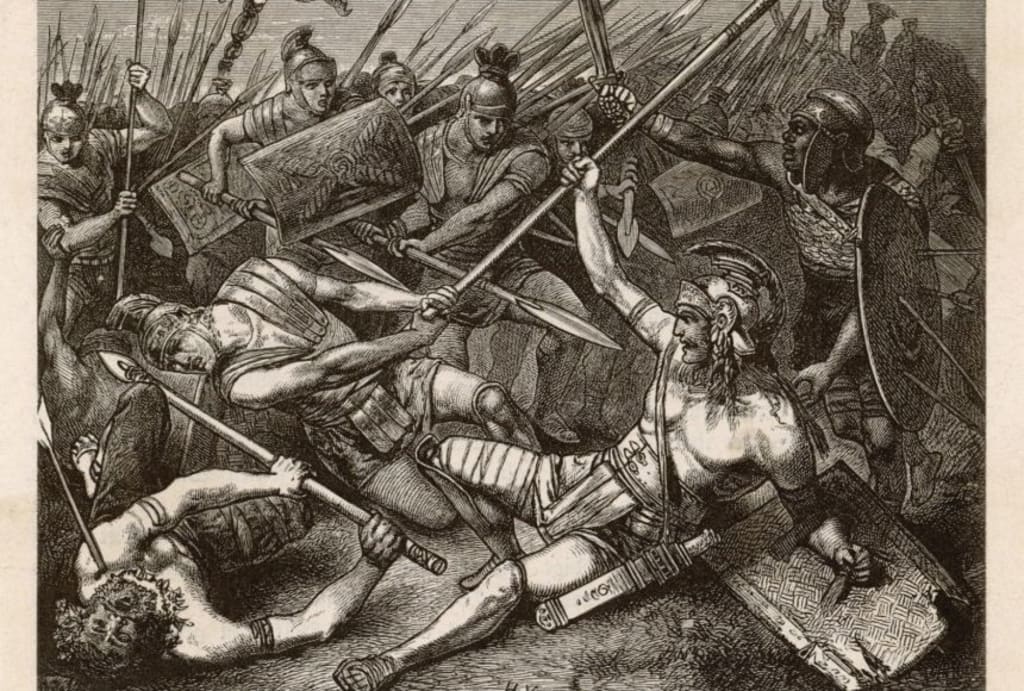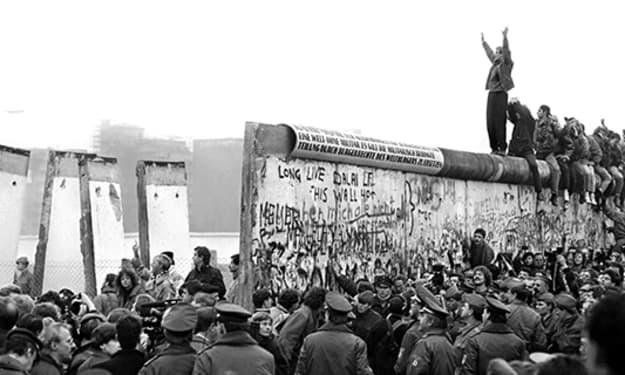
In the rugged mountains of Thrace, a region known for its fierce warriors, a child named Spartacus was born. Little did the world know that this Thracian would grow up to become one of history's most iconic figures—a symbol of courage, defiance, and the fight for freedom.
Spartacus spent his early years in a small village, immersed in the Thracian way of life. As he grew older, his physical strength and natural talent for combat became apparent. Trained in the art of warfare, he developed exceptional skills that would serve him well in the battles that lay ahead.
However, his life took a tragic turn when he was captured by the Roman legions during a military campaign. The mighty Roman Empire, with its sprawling territories and power, saw potential in the young warrior. Spartacus was sold into slavery, his fate forever tied to the whims of his Roman masters.
Transported to the heart of the empire, Spartacus found himself in the bustling city of Rome. There, he became part of a system that thrived on the exploitation of human beings. Slavery was a pervasive institution, and Spartacus experienced firsthand the harsh realities of his new existence. Separated from his family, stripped of his identity, he was reduced to a mere possession—a tool for the entertainment of the masses.
Spartacus was trained in the brutal and dangerous world of the gladiatorial schools. Forced to fight for the amusement of the Roman elite, he learned to wield weapons and harness his fighting prowess. Each day brought blood, pain, and the constant reminder of his captivity.
But within the heart of this gladiator beat the spirit of a rebel. Spartacus witnessed the suffering and despair of his fellow slaves, their lives reduced to mere chattel. A fire began to burn within him—a burning desire to reclaim their humanity and rise against their oppressors.
Spartacus, fueled by his burning desire for freedom, meticulously forged alliances among the gladiators, gradually gaining their trust and loyalty. Among them were Crixus, a Gaulish warrior known for his ferocity, and Oenomaus, a skilled gladiator with a deep sense of honor. Together, they formed a formidable trio, each bringing their unique strengths and experiences to the rebellion.
With their ranks growing and the plan taking shape, Spartacus, Crixus, and Oenomaus devised a daring escape strategy. They gathered intelligence on the layout of the gladiatorial school, noting the guard rotations, weaknesses in security, and the best possible escape routes. Their meticulous planning gave them a slim chance of success.
The fateful night arrived—a moonless night when the shadows seemed to conspire in their favor. As the guards let their vigilance slip, Spartacus and his comrades struck swiftly and silently. Overpowering their captors, they unleashed a torrent of chaos and confusion, their desire for freedom fueling their every blow.
Spartacus's leadership and strategic brilliance shone through as he directed the chaos, guiding his fellow gladiators to safety. With their hands still stained with blood, they burst through the gates, leaving the stunned guards in their wake. The rebellion had begun.
News of the daring escape spread rapidly throughout the Roman Empire. Spartacus, the gladiator turned rebel leader, had become a beacon of hope for the oppressed. Slaves and freedmen, long suffering under the oppressive regime, flocked to join his cause, seeking a chance to strike back at their tormentors.
As the rebel army grew in number, Spartacus recognized the need for discipline and organization. He appointed trusted individuals to leadership positions, ensuring that every member of the rebellion had a voice. Their diverse backgrounds and skills proved to be an asset, as they pooled their knowledge and experiences to form a formidable fighting force.
Spartacus, an astute tactician, understood the importance of striking swiftly and decisively. He meticulously planned their movements, exploiting the terrain to gain the upper hand against the Roman forces. Engaging in hit-and-run tactics, they disrupted supply lines, ambushed Roman patrols, and freed slaves wherever they could.
The rebellion's early successes fueled the hope and determination of Spartacus and his army. They grew bolder, launching audacious attacks against Roman strongholds. With each victory, more slaves joined their ranks, swelling their numbers and further challenging the Roman authorities.
However, the road to freedom was fraught with internal challenges. As the rebellion gained momentum, divergent opinions and conflicting ambitions threatened to fracture the unity they had fought so hard to achieve. Spartacus, ever the charismatic leader, employed diplomacy and mediation to bridge divides, emphasizing the importance of their shared goal: liberation from the shackles of slavery.
Meanwhile, the Roman Senate, alarmed by the growing threat, dispatched legions led by experienced commanders to crush the rebellion and restore order. Spartacus knew that the might of Rome would be formidable, but he remained steadfast in his belief that freedom was worth any sacrifice.
As Spartacus and his rebel army faced the might of the Roman legions in open battle, their tenacity and strategic brilliance continued to shine. They employed guerilla tactics, utilizing the terrain to their advantage, ambushing the Romans and retreating when necessary. Their resilience and unwavering resolve left the Roman commanders confounded.
The rebellion reached its climax on the plains of Italy, where Spartacus and his forces made their final stand against the legions of Rome. Though outnumbered and outmatched, their fervor and determination remained unyielding. The battle raged fiercely, with Spartacus fighting alongside his comrades, leading from the front.
In the midst of the chaos, Spartacus faced his ultimate challenge—a duel against the Roman general Crassus, a man renowned for his tactical brilliance. The clash of these titans echoed through history, a symbolic battle between freedom and tyranny. Though Spartacus fought valiantly, his efforts were ultimately in vain. Overwhelmed by the sheer numbers of the Roman legions, Spartacus fell on the battlefield.
His death marked the end of the rebellion, but Spartacus had achieved something far greater than victory on the battlefield. He had ignited a flame of resistance that would endure throughout the ages, inspiring countless others to rise against oppression and fight for their rights.
Spartacus, the gladiator turned rebel leader, became a legend—a symbol of courage, determination, and the indomitable human spirit. His story transcended time, reminding future generations that even in the face of seemingly insurmountable odds, the pursuit of freedom and justice is a cause worth fighting for.
About the Creator
Titan
Just a college student who needed some motivation so I started writing. Hope the wisdom helps. I won't be creating stories for only one genre so stick around, you'll find a variety of stories.





Comments
There are no comments for this story
Be the first to respond and start the conversation.